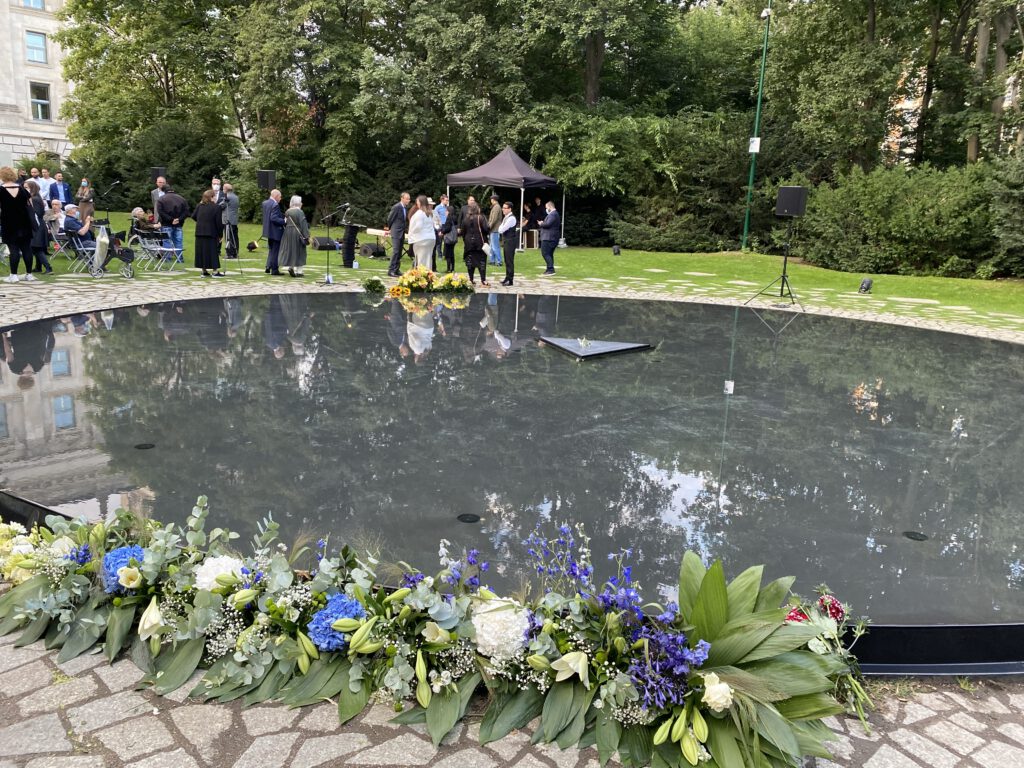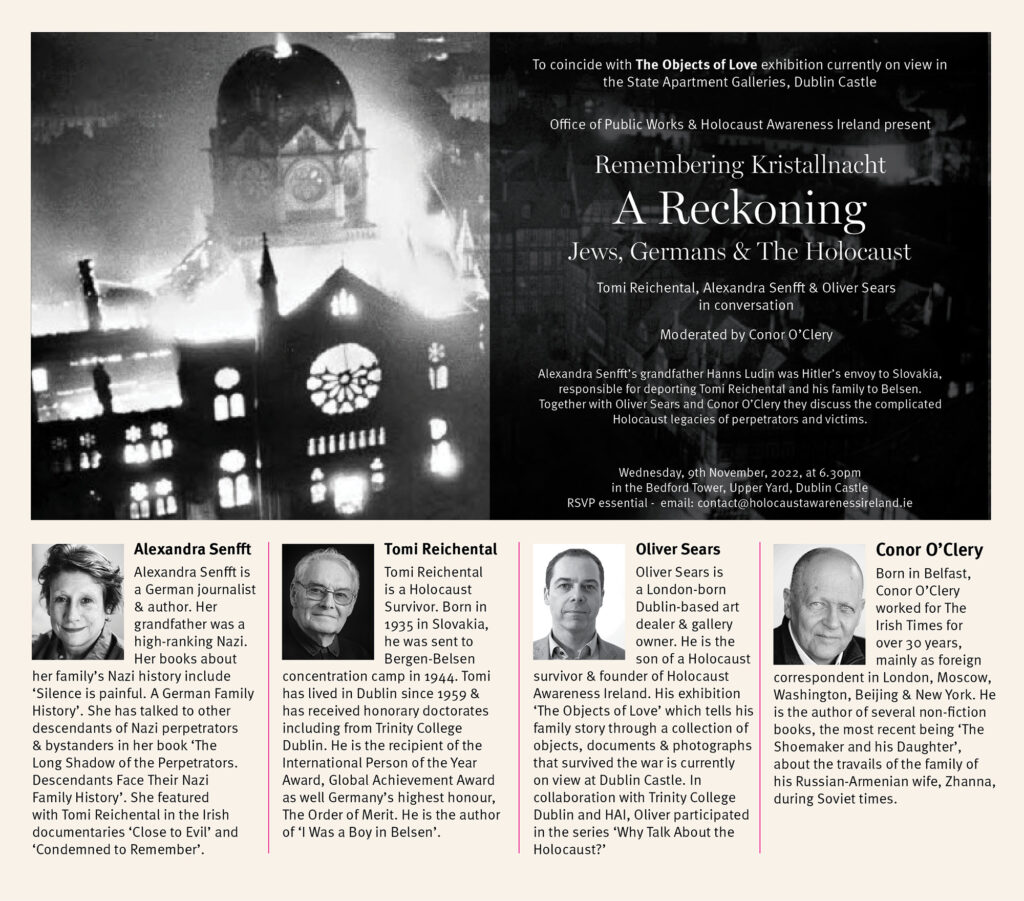A new train tunnel running under the memorial has been described as ‘macabre’ given how many Sinti and Roma were deported by rail to their deaths
Derek Scally in Berlin
Fri Aug 02 2024
“This is a symbolic grave for all those who lost their lives, and it is a shame if it is up to this minority to defend it,” said Alexandra Senfft, co-author of Great Uncle Paul’s Violin Bow, a memoir about Romeo Franz and his family. “This is also a memorial for the German people and it is our responsibility, as the majority in the society, to save it.”
>> to article, Irish Times 2/24
Foto: Alexandra Senfft


